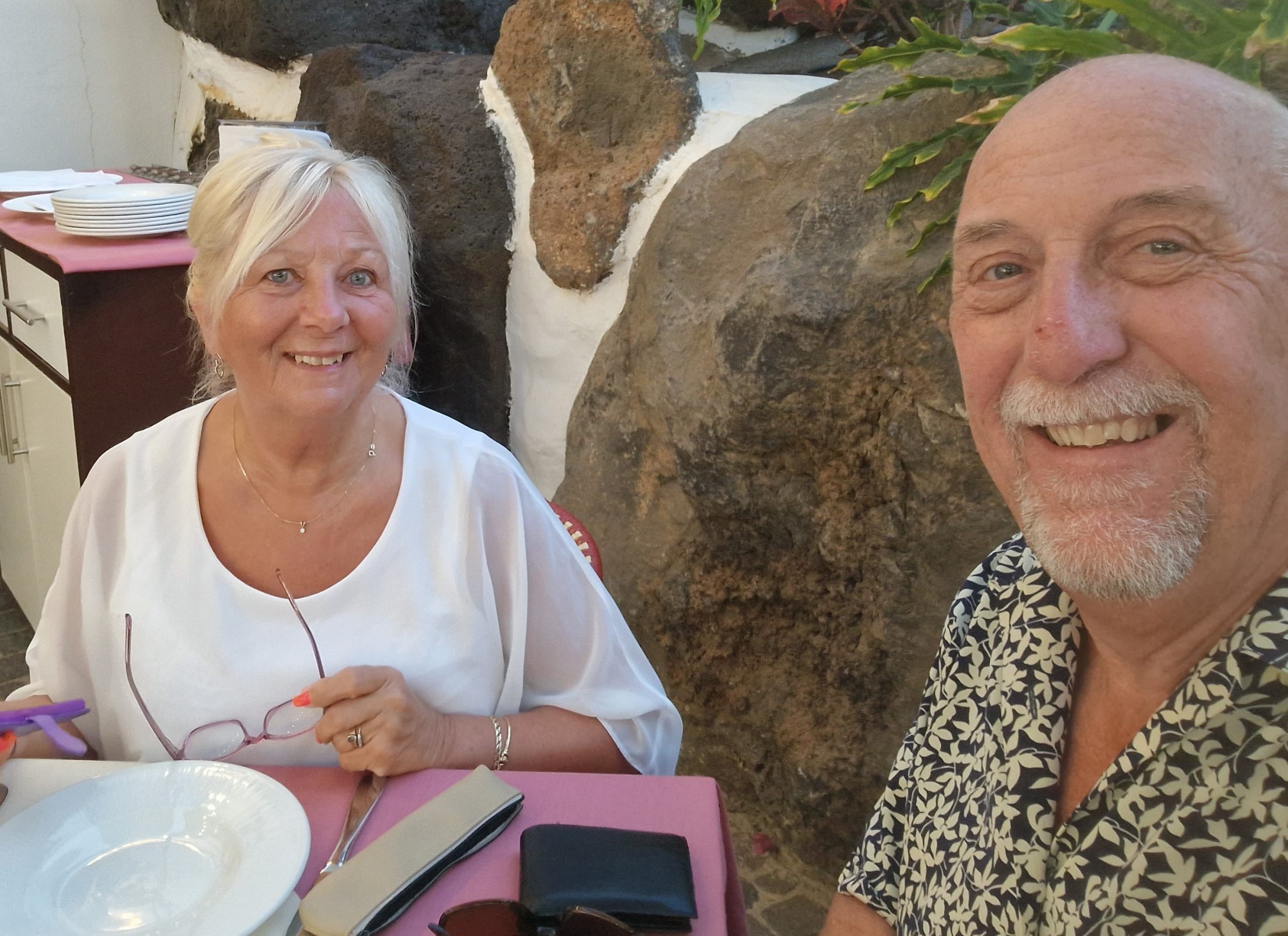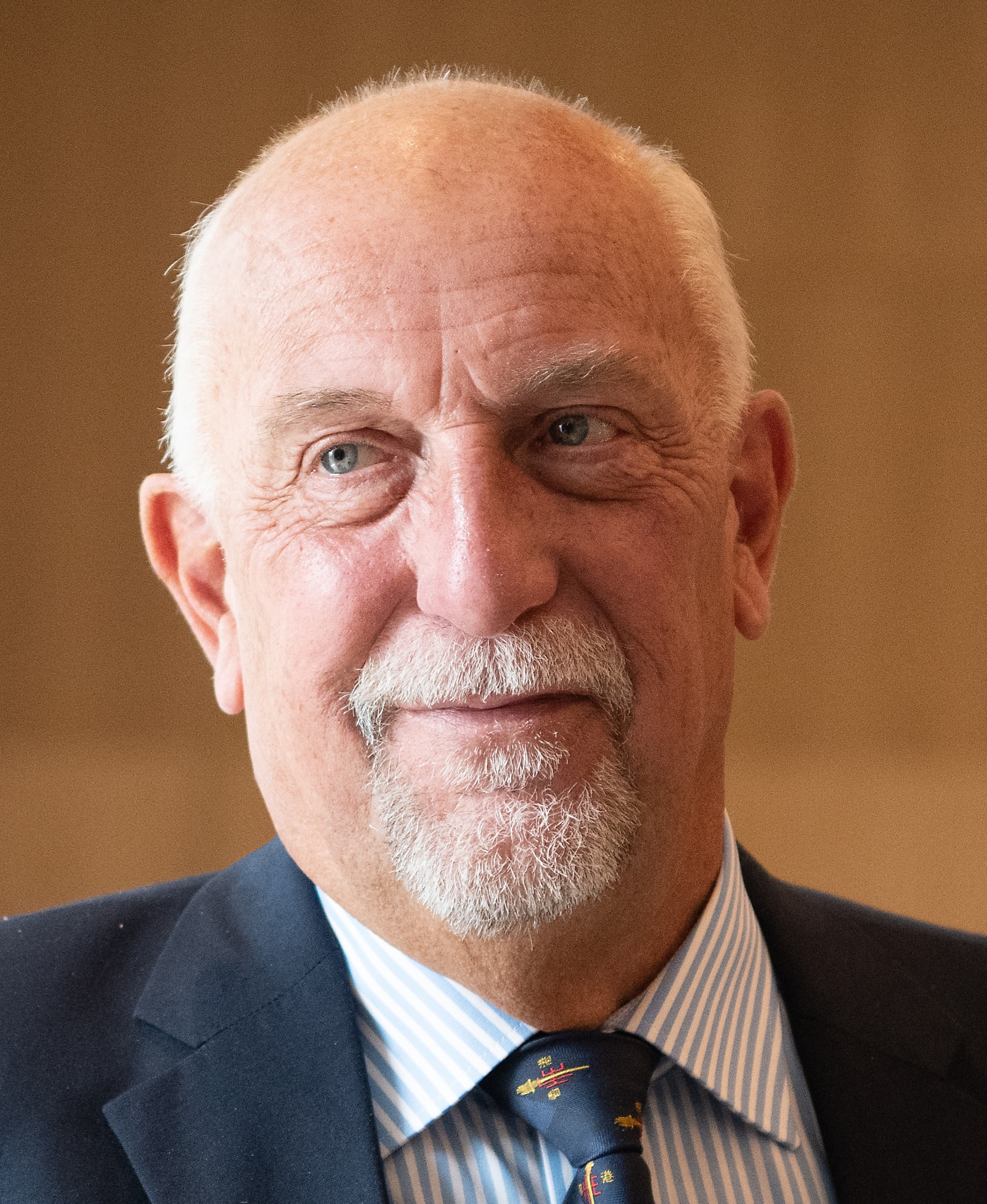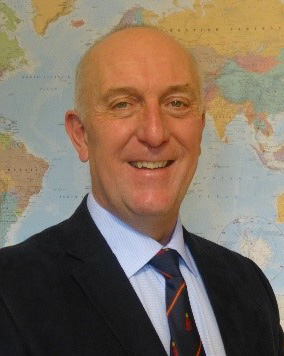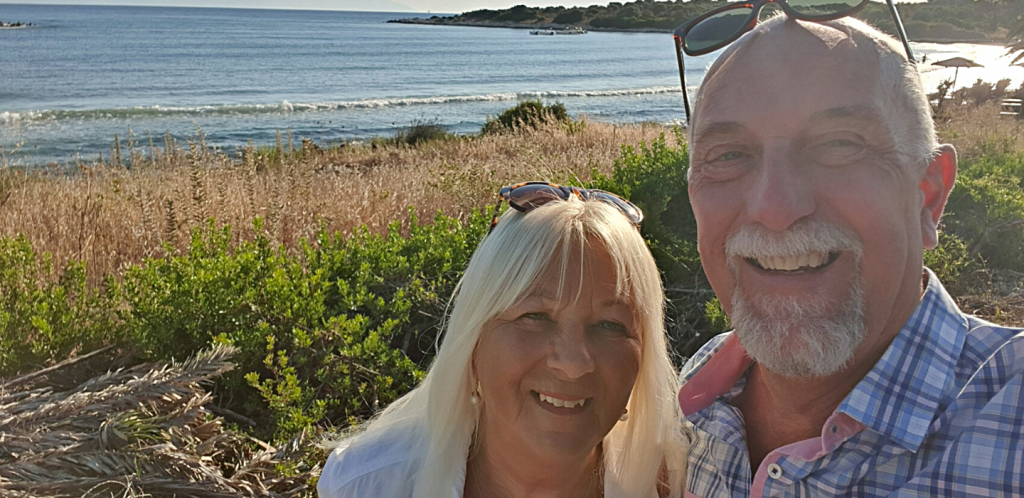With a 37-year operational fire service career behind him – including time as Deputy Chief Fire Officer with Devon and Somerset FRS – Neil Gibbins has always been aware of the huge wealth of support we have on offer to our fire services community.
But despite championing our work for four decades, as well as becoming the Deputy Chair of our Board of Trustees, Neil never thought he’d need help himself until 2023, when he was diagnosed with inoperable lung cancer.
Faced with an uncertain future, Neil says the challenges he suddenly experienced with his physical health came hand in hand with a very difficult period mentally, and attending our Reset Programme at Harcombe House was the perfect time-out for him.
“I’ll never forget the first time I visited Harcombe House in 1982. We were there painting the bungalows and were absolutely blown away by it all,” says Neil.

“As a crew, we’d been involved in Open Days and fundraising, but this was the other side of the coin. It was really, really special.
“I’ve never asked for any assistance before now, I’d never really thought about it. One of my roles as Deputy Chief in Devon and Somerset was being involved in meetings with people who’d been off work for a long time. I was really pleased that the charity was there so I could encourage people to get help when they needed it. Then there’s another layer for partners and families of course too.”
Everything changed for Neil in 2023, however, when he received the devastating news that he had inoperable lung cancer.
“I had a cough from the end of January for six weeks, then it went away and came back again in March through into April,” says Neil. “I was sent for a chest X-ray and later a CT scan. They just said they wanted some more clarity so I didn’t overthink it at the time.
“Then the day after, my GP rang me and said, ‘you need to come into see me, I’ve got some news for you’. I said, ‘that’s not good then is it?’ and he said, ‘no it’s not’.
“My wife and I went in and we were told I had lung cancer, which had spread and was inoperable. I didn’t know whether I was coming or going to be honest…”
Neil was offered immediate support through the NHS, including a biopsy to determine the best course of treatment.
Donate now to support more people like Neil

“I had a long wait for the results from that, in which time I got very tetchy,” he says. “My cough had got really bad and I couldn’t walk very well, my lung had collapsed, I just thought, ‘this is it, I’m going’.
“I can’t picture the change from it just being a cough to spending all day on the settee, hardly able to get up. I lost two stone very quickly. My brother and sister came to see me and everyone was thinking it was the worst.
“A few weeks later, the oncology team told me they’d be trying me on immunotherapy. I said, ‘yep, I’m up for that fight, let’s get on with it’. That was about the first time I’d felt any positivity. It felt like someone had hope and it wasn’t just a matter of waiting for the worst to happen.
“Then on the Friday I got another phone call saying they’d got all my results back and I’d turned up positive for a particular strain of cancer, and they had some tablets for me that would sort me out.
“Half an hour later I was at the hospital to pick up a prescription and I started the tablets that same day.
“On the Saturday night I felt much better… 10 days later I wasn’t coughing at all and after six weeks, my X-rays showed no sign of a tumour in the lung, no shadow at all, absolutely clear.
“They now say the tablets will hold the cancer back, it’ll never be gone, but I’ve been told to get on with my life.”

While Neil’s physical health improvement was incredible, both he and his wife had been heavily impacted mentally – and that’s when he turned to us.
“I was feeling a little jaded mentally after all this and I thought a break would be good,” says Neil. “For my wife, Sue, too, having a week without me at home would be a break for her – because she’d been through every stage with me of course, and we’d both been in a very dark place.
“I made a distinct decision not to tell anyone I knew in the charity, because I wanted to experience everything as a beneficiary, seeing things from their perspective.
“I went through the website, had a phone call the next day and the ball started rolling very quickly.
“They told me they thought the Reset Programme would suit me well, as it’s a mix of physical and mental health support.”
Neil adds: “There were seven people in my group, six who were in the fire service themselves at some point and one who was a partner of a serving member of the fire service.
“By the Monday lunchtime we were all sat round the table and it felt like we were a really close group, it was great. Everyone knew we were there for a reason, but no one had to share anything they didn’t want to.
“It was absolutely superb, from the talks to the physical and mental health support. Then when you walk round Harcombe it’s just awesome, it’s absolutely beautiful.
“I was a little anxious about my breathing in the pool, but one of the Physiotherapists worked specifically with me to work through my anxiety so now I can go swimming every day – it opened the door for me.
“I would encourage all firefighters to think about their retired colleagues and their families”
Neil Gibbins
“It’s also really shown me how much it works to use your body to energise your mind.
“At the end, I encouraged the whole group to go away and tell people about their experience. The best thing we have is our experience.”
While Neil always knew how far our support stretched, he’s more aware than ever how important it is that every one of our beneficiaries understands they’re eligible too.
“I would encourage all serving firefighters to think about their retired colleagues and their families, and to think about on-call, support staff, Control staff and everyone else who’s employed by the FRS and may well one day need to assistance of this charity. You need to take it,” he says.
“The public have been supporting The Fire Fighters Charity since the Second World War, so if people need help, that’s what the public have been putting the money in for.”
Note: Since this article was first published, Neil reports that the medication is working well. With continuing support from the charity’s team, Neil is able to live a full and active life. He continues to be Deputy Chair of the charity’s Trustees Board and is the Fire Lead for CROSS-UK.
If you feel you’d benefit from our health and wellbeing support, we may be able to help you. Call our Support Line on 0800 389 8820, make an enquiry online or register for My Fire Fighters Charity now and visit the ‘Access Support’ tab.
You can also join our ‘Share Your Story’ Group in the app, by clicking on the ‘Groups’ tab, to chat to others who have received our support or enquire about sharing your own story.

